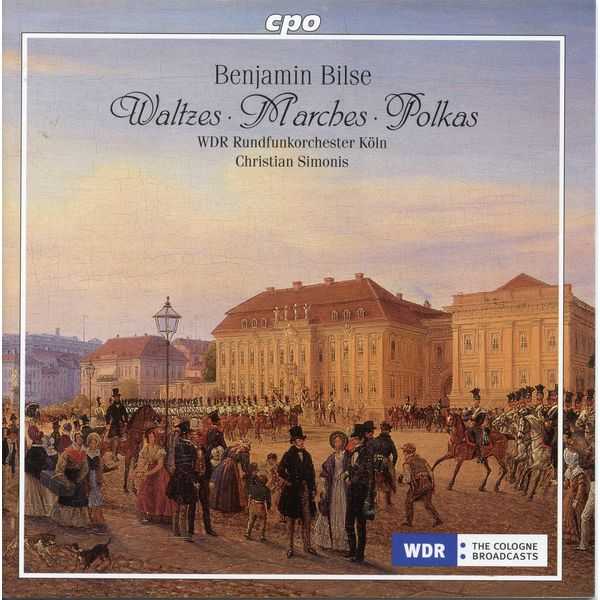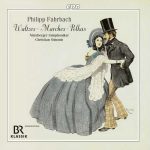
Composer: Benjamin Bilse
Orchestra: WDR Rundfunkorchester Köln
Conductor: Christian Simonis
Format: FLAC (tracks)
Label: CPO
Catalogue: 777341-2
Release: 2008
Size: 372 MB
Recovery: +3%
Scan: cover
01. Sturm-Marsch Galopp, Op. 6
02. Baumgarte-Allee Polka, Op. 23
03. Marienwalzer
04. Nur mit dir, Op. 34
05. Schlesische Lieder, Op. 20
06. Catharina-Quadrille, Op. 24
07. Die Fürstensteiner, Op. 28
08. Mit Bomben und Granaten, Op. 37
09. Winterflocken-Galopp, Op. 19
10. Victoria Walzer, Op. 22
11. Königs-Polonaise, Op. 26
12. Die Provinzialen
13. Concerthaus Polka
14. Schützenmarsch, Op. 13
Benjamin Bilse was famed for being a conductor of the Bilse Orchestra in Berlin, before moving onto the Berlin Philharmonic. He was also a very gifted composer and composed a selection of rousing marches, sprightly polkas, and yearning waltzes, a selection of which are featured on this disc.
He was on very close terms with the Prussian royal family and some of his martial titles certainly owed their composition to these ties. Works such as the Storm March-Galop and Bombs and Grenades show him to be the equal of the Viennese Waltz King Johann Strauss, his Prussian counterpart
It is the Strauss family that comes to mind when dance music of the middle nineteenth century is mentioned, but other continental cities had their composer/orchestra leaders who ruled their local scenes when it came to the waltz, polka, galopp, and numerous lesser dance crazes. The relevant figure for Berlin was Benjamin Bilse, largely ignored nowadays but successful enough in his own time to have controlled his own concert hall, known as the Bilse. The thoroughly enjoyable booklet notes for this release by Germany’s CPO label quote Tchaikovsky’s description of the place: “The large magnificent hall, in which one could smell bad cigars and food and in which women knitting stockings and men drinking beer passed the time, made a peculiar impression on me.” His orchestra was well drilled, indeed; in fact, one of the two branches into which it split after a disagreement (the notes tell the whole story) evolved into what is now the Berlin Philharmonic Orchestra. The somewhat militaristic strain in the music of various composers in this style is magnified with Bilse, who employs march-like fanfares even in polkas that have a lighter overall tone. His best-known hit was Mit Bomben und Granaten (track 8). But he was also a very seductive melodist, and many pieces have the sharp but carefully controlled contrast of rhythm and tune that makes Sousa’s music so attractive. Hear the Catharina Quadrille (track 6), and you may be convinced that Arthur Sullivan knew Bilse’s music; indeed, Bilse was popular enough in his own time that Sullivan might have found it hard to avoid. The weak point here is the plain playing of the West German Radio Orchestra of Cologne under Christian Simonis, which makes it hard to imagine the rock-concert-like audience reactions Bilse’s music inspired in its day. But the group has nevertheless done a service by resurrecting this composer, whose output would seem to offer a rich source of selections for pops concerts and the like.



